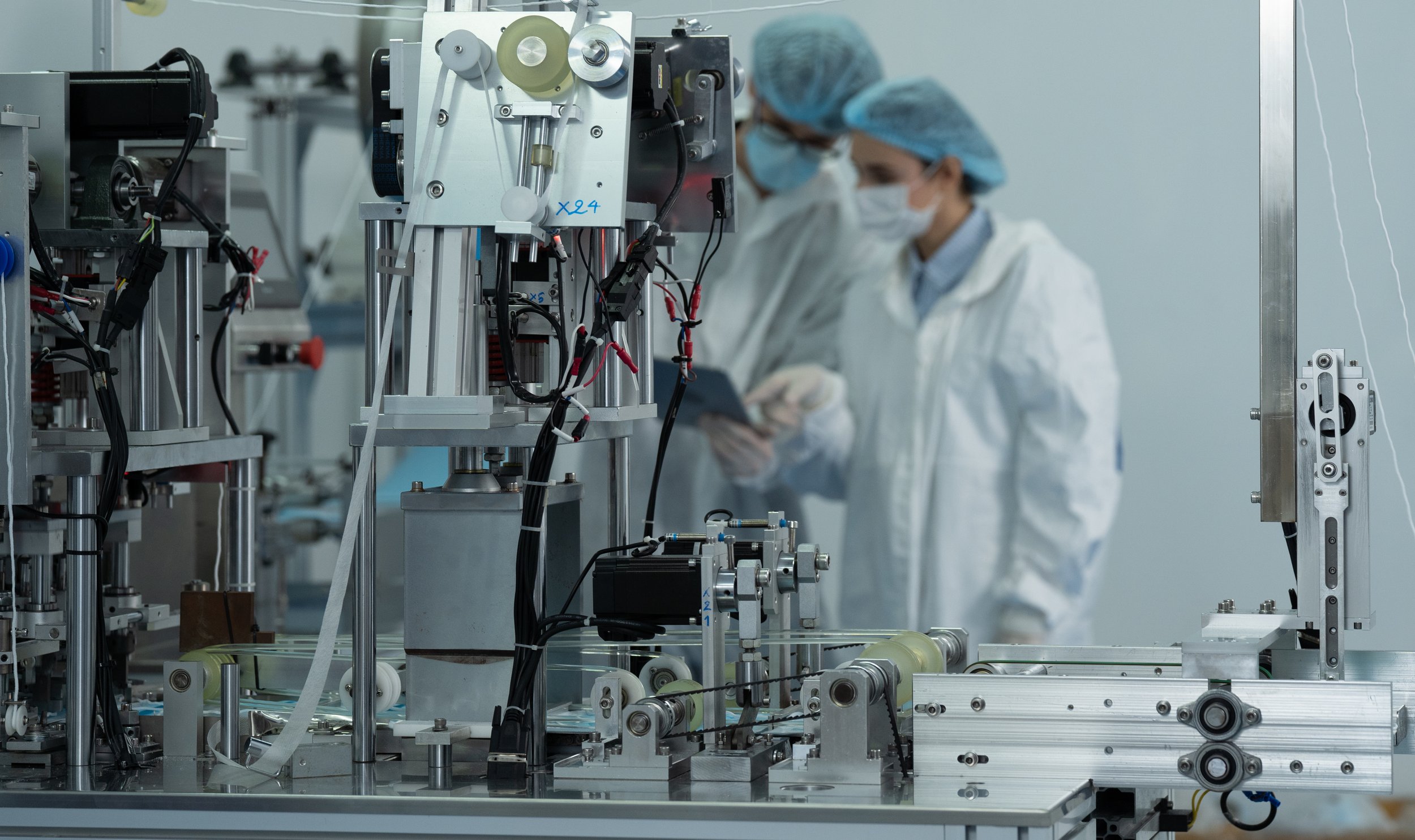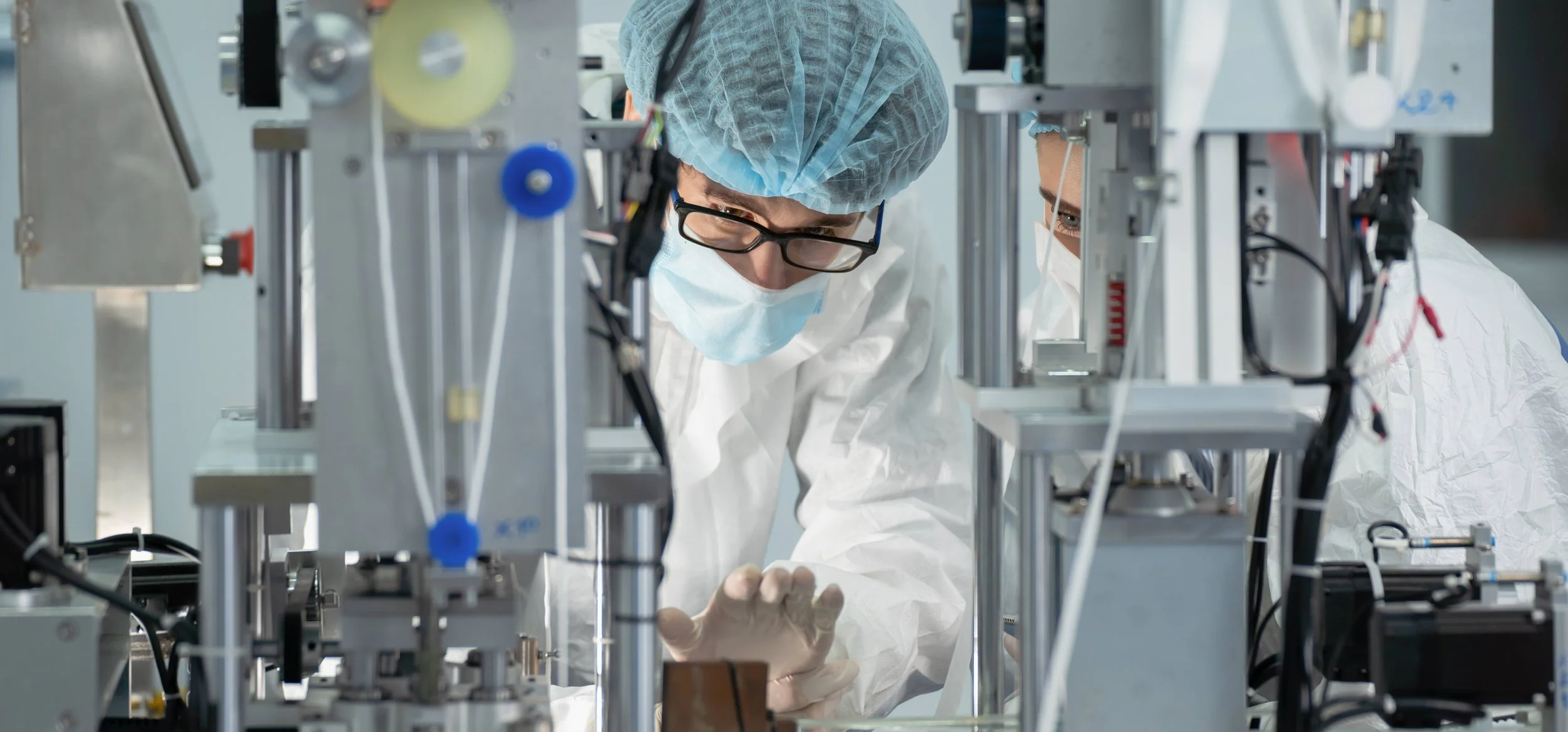US-Based Production Quality & Scale in Cannabis Robotics Manufacturing
The cannabis industry is undergoing a significant shift toward automation, and robotics plays a pivotal role in this transformation. According to the 2024 SilverLeaf State of the Cannabis Industry report, over 80% of cannabis producers plan to increase their use of automation and robotics to enhance operational efficiency and reduce costs. With an ever-growing demand for cannabis products, producers are embracing automation to streamline their processes, maintain consistent quality, and scale production efficiently.
In this blog post, we will explore the impact of robotics on cannabis manufacturing, with a focus on U.S.-based production quality and scalability.
The Surge of Automation in Cannabis Manufacturing
The U.S. cannabis industry is rapidly evolving, with automation becoming a key driver of efficiency. Automation is no longer a luxury but a necessity in a competitive and highly regulated market.
The cannabis industry faces numerous challenges, from ensuring consistent product quality to meeting growing consumer demand. Robotics provides a solution by offering precise, efficient, and scalable processes. This transformation in cannabis manufacturing is helping companies meet regulatory standards while boosting production efficiency, reducing human error, and ensuring uniformity in the products they produce.
Enhancing Production Quality Through Robotics
Robotics in cannabis manufacturing has revolutionized the way cannabis products are produced. By automating tasks such as pre-roll production, infusion, sorting, and packaging, robotics ensures a level of precision that is simply unattainable through manual labor. The benefits of using robotics for production quality are manifold.
How Do Robotics Improve Cannabis Product Quality?
Robotics significantly improves the quality of cannabis products by ensuring that each unit is processed with consistent precision. For example, automated systems such as Sorting Robotics' Jiko machine handle pre-roll production with extreme accuracy, ensuring that each pre-roll is infused uniformly and consistently. By eliminating human error in critical processes like weight measurement, density control, and even infusion of concentrates (such as live resin, CBD, or distillate), robotics ensures a consistently high-quality end product.
The Jiko machine, which can process up to 1,000 pre-rolls per hour, is a prime example of how robotics can improve production quality. Unlike human labor, which may fluctuate in quality due to fatigue or skill limitations, robotics works tirelessly, guaranteeing uniformity and consistency in every product.
Research shows that cannabis laboratory operations face challenges in staffing, training, and quality management. Integrating robotics and automation into the production process helps maintain high standards. Laboratories must focus on continuous improvement to remain competitive, just as robotics ensures continuous, reliable product quality.
Robotics also improves product consistency by monitoring variables such as temperature, pressure, and speed, which are essential to maintaining high-quality standards. These systems integrate sensors and real-time feedback loops to adjust settings on the fly, ensuring that each product meets the required specifications.
Achieving Economies of Scale with Automation
Automation not only improves the quality of cannabis products but also allows producers to scale their operations. With increasing demand, cannabis manufacturers need to produce more products in less time without compromising quality. This is where automation shines.
What Are the Economic Benefits of Scaling Cannabis Production?
Automation plays a significant role in helping cannabis manufacturers scale production without increasing costs proportionally. By implementing automated systems, producers can achieve economies of scale that would otherwise be impossible with a manual workforce.
A 2021 report by the Washington State Liquor and Cannabis Board (WSLCB) highlights that automation in cannabis production, pick and pack robots can reduce labor costs by up to 85%. With automated systems handling repetitive tasks such as sorting, packaging, and labeling, cannabis producers can focus their human resources on more complex tasks, such as quality control and troubleshooting.
Automated systems can also handle larger volumes of production without requiring additional personnel. This enables cannabis producers to meet the increasing consumer demand for products while maintaining cost-efficiency and profitability. Additionally, the scalability of robotics ensures that producers can quickly adjust their production capacity as market demand fluctuates.
Automation also enables manufacturers to streamline their supply chain processes. For example, your cannabis business’s scale with automated packaging systems can work in tandem with inventory management systems to ensure that products are packaged and shipped promptly, minimizing delays and improving overall operational efficiency.
Overcoming Production Bottlenecks with Smart Automation
Cannabis producers often face production bottlenecks that hinder their ability to meet demand. These bottlenecks can occur at various stages of the production process, including trimming, packaging, and labeling. With the help of smart automation, cannabis manufacturers can overcome these bottlenecks and significantly increase throughput.
How Does Smart Automation Alleviate Production Challenges?
One of the most significant advantages of intelligent automation is its ability to eliminate production bottlenecks. Automated systems can take over tasks that are slow, repetitive, and prone to human error, allowing the production process to flow more smoothly.
For instance, automated packaging lines equipped with sorting robots can package cannabis products at an unprecedented rate. These systems can sort, weigh, and package products into their respective containers, eliminating the need for manual labor. This not only speeds up the process but also ensures that packaging is done with consistent accuracy.
According to a 2021 MJBizDaily survey, 62% of cannabis producers cite labor shortages and packaging delays as their top operational challenges. Automation can help address these issues by reducing the reliance on human labor for these time-consuming tasks, thus speeding up production and lowering costs.
Additionally, automated systems can improve compliance with regulations by ensuring that products are packaged and labeled according to industry standards. Computerized systems can track every step of the production process, providing detailed logs that can be used for auditing and compliance purposes.
Study shows that, as production systems become increasingly complex, with multiple machine operations and personalized setups, agile sequencing techniques become crucial for handling intricate production workflows. For example, the development of optimized job sequences for custom setups, common in cannabis production, can reduce delays and improve overall efficiency.
The Future Outlook: Robotics and AI Integration
As robotics technology continues to advance, we are seeing the integration of artificial intelligence (AI) in cannabis manufacturing. AI-powered robotics is capable of analyzing vast amounts of data in real time and making decisions that improve efficiency, reduce downtime, and optimize production schedules.
What Role Will AI Play in the Future of Cannabis Manufacturing?
AI is poised to play a crucial role in the future of cannabis manufacturing by enhancing the capabilities of robotics. AI can be used to predict equipment malfunctions before they occur, optimize production schedules, and even adjust production parameters in real time to improve infused pre-roll consistency.
AI is increasingly being applied across the entire cannabis supply chain, from optimizing plant tissue culture practices to creating AI-powered apps and chatbots for customer interactions. This integration of AI and machine learning (ML) algorithms is revolutionizing cannabis cultivation, production, and customer engagement, ensuring businesses remain competitive in a rapidly evolving market.
For example, AI can analyze data from automated systems to predict when maintenance is needed on machinery. This helps to prevent costly downtime and ensures that the production line continues to operate smoothly. AI can also optimize production schedules by analyzing historical data and market trends to forecast demand more accurately.
The integration of AI into cannabis manufacturing also opens up the possibility of personalized cannabis products. AI can analyze consumer preferences and recommend custom formulations based on individual needs. This level of customization could revolutionize the cannabis industry, offering products tailored to specific consumer desires.
Regulatory Compliance and Quality Control Through Automation
Compliance with regulations is one of the most critical aspects of cannabis manufacturing. Automated systems can play a pivotal role in ensuring that cannabis producers meet all regulatory requirements, including tracking and reporting production data, maintaining product quality, and adhering to packaging and labeling standards.
How Does Automation Ensure Compliance with Cannabis Regulations?
Automated systems help cannabis producers comply with regulations by maintaining accurate records of every stage of production. These systems can track the origin, processing, and final packaging of cannabis products, ensuring that manufacturers can provide complete transparency if required by regulatory agencies.
For instance, automated systems like those used by Sorting Robotics integrate custom cannabis automation systems built-in tracking and reporting features that log every action taken by the machine. This data can be accessed at any time for audit purposes, ensuring that producers comply with both state and federal regulations.
Moreover, automation ensures that quality control measures are consistently followed. Systems can be programmed to check product quality at various stages of production, ensuring that every unit meets the required standards. This level of consistency is fundamental in the cannabis industry, where product quality is directly linked to consumer safety and brand reputation.
Embrace Automation for Sustainable Growth Through Robotics Use
Automation is the key to unlocking the full potential of U.S.-based cannabis production. Robotics offers significant advantages in terms of production quality, scalability, cost reduction, and regulatory compliance. By integrating intelligent automation and AI into their operations, cannabis producers can overcome challenges, enhance product consistency, and scale their businesses efficiently.
As the industry continues to grow, automation will play an increasingly vital role in ensuring that producers meet demand, maintain quality, and stay competitive. With the rapid advancements in robotics and AI, the future of cannabis manufacturing is promising, and companies that embrace these technologies will be well-positioned for long-term success.
Contact Sorting Robotics today for Robotics Manufacturing Services.
Frequently Asked Questions
How does automation improve the efficiency of cannabis production?
Automation improves efficiency by eliminating manual labor for repetitive tasks such as packaging, sorting, and infusion. This speeds up production and reduces the likelihood of errors, allowing producers to meet demand while maintaining product consistency.
What are the cost-saving benefits of automation in cannabis manufacturing?
According to a study, Automation can reduce labor costs by up to 85%, streamline production processes, and eliminate bottlenecks. By automating time-consuming tasks, producers can increase throughput, improve scalability, and achieve economies of scale.
Can robotics ensure compliance with cannabis regulations?
Yes, robotics can ensure compliance by tracking every step of the production process and providing real-time data on inventory, labeling, and quality control. This helps producers meet state and federal regulatory requirements while maintaining high-quality standards.
How will AI enhance the future of cannabis manufacturing?
AI can optimize production schedules, predict equipment maintenance needs, and personalize products based on consumer preferences. By integrating AI with robotics, cannabis producers can increase efficiency and customize products to meet the demands of their customers.
What impact will robotics have on the quality of cannabis products?
Robotics ensures consistent product quality by eliminating human error in processes such as infusion, sorting, and best packaging. By automating critical steps, robotics provides precise control over production variables, resulting in uniformity and high-quality products.




